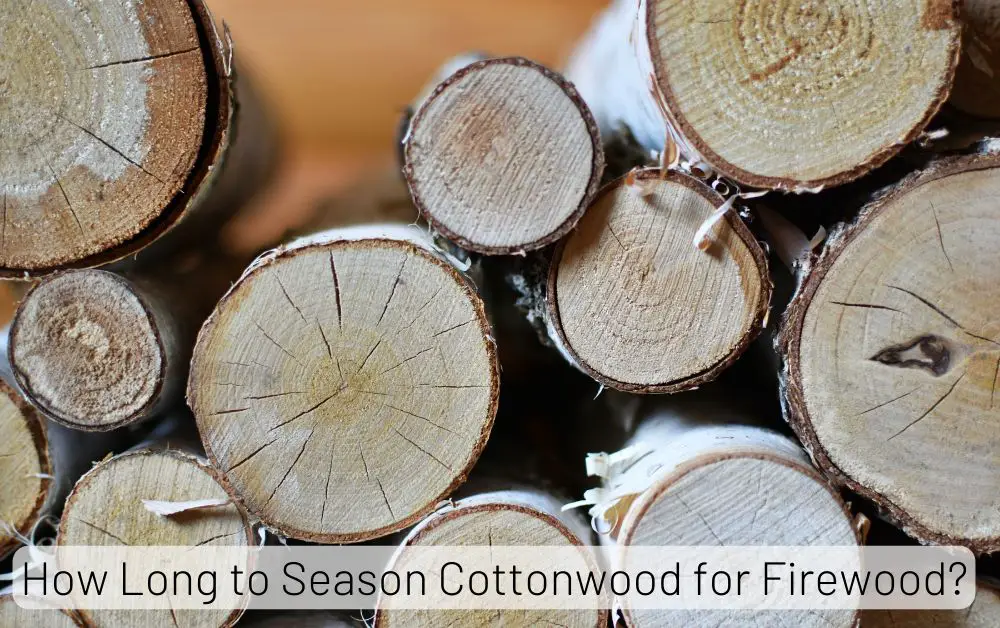If you have ever experienced the unpleasant surprise of your firewood emitting an odor reminiscent of poop when burned, you’re not alone. This phenomenon can be both perplexing and off-putting, leaving many homeowners scratching their heads in search of answers.
One of the primary culprits behind firewood smelling like poop is its moisture content. Wood that hasn’t been properly seasoned or dried tends to retain moisture, leading to incomplete combustion when burned. As a result, the water content in the wood vaporizes, carrying with it compounds that can contribute to foul odors, similar to the smell of sewage.
Before we dive into the potential causes behind the poop-like odor emanating from your firewood, it’s essential to distinguish between normal firewood scent and foul odors.
While freshly cut or seasoned firewood often emits a pleasant aroma when burned, certain factors can contribute to the wood producing a less-than-desirable smell, reminiscent of feces.
Why Does My Firewood Smell Like Poop?
Below are the common reasons why firewood smells like poop.
1. Moisture Content
One of the primary culprits behind firewood smelling like poop is its moisture content. Wood that hasn’t been properly seasoned or dried tends to retain moisture, leading to incomplete combustion when burned.
As a result, the water content in the wood vaporizes, carrying with it compounds that can contribute to foul odors, similar to the smell of sewage.
2. Type of Wood
Not all types of wood are created equal when it comes to odor production. Some varieties, such as pine and cedar, contain natural compounds that, when burned, can release unpleasant smells akin to fecal matter.
Choosing the right type of wood for burning is crucial in avoiding foul odors and ensuring a more pleasant experience.
3. Residue and Contamination
Residue and contaminants present in firewood can also play a significant role in its odor profile. Wood that has been treated with chemicals or exposed to pollutants may emit foul odors when burned.
Firewood that has come into contact with animal waste or other organic matter can carry lingering smells that become apparent when subjected to heat.
4. Animal Infestation
Another potential cause of firewood smelling like poop is animal infestation. Insects, rodents, and other pests can take up residence in firewood, leaving behind droppings and other waste products that contribute to unpleasant odors when burned.
It’s essential to inspect firewood for signs of infestation before bringing it indoors for use.
5. Storage Conditions
Improper storage of firewood can exacerbate odor issues. Wood that has been exposed to moisture, humidity, or mold during storage is more likely to emit foul odors when burned.
Storing firewood in a dry, well-ventilated area away from potential contaminants is key to preserving its quality and minimizing odor problems.
Related Post: Is Cypress Good Firewood?
Preventing Poop Smell in Firewood
To prevent firewood from smelling like poop, proper management and maintenance are essential. This includes choosing seasoned wood with low moisture content, selecting suitable wood types, storing firewood correctly, and avoiding contamination.
Additionally, conducting regular inspections and addressing any issues promptly can help mitigate odor problems before they arise.
Alternative Uses
If you find yourself with firewood that emits an unpleasant odor when burned, don’t despair. There are alternative uses for tainted wood that don’t involve lighting it on fire.
Consider using it for outdoor projects, such as building a compost bin or creating rustic garden decorations, where the smell won’t be as much of an issue.
Safety Considerations
When dealing with foul-smelling firewood, it’s essential to prioritize safety. Avoid burning contaminated wood indoors or in confined spaces, as this can release harmful toxins into the air.
Instead, opt for safer disposal methods, such as composting or contacting local waste management services for guidance on proper disposal procedures.
Seeking Professional Help
If you’re unsure how to address odor issues with your firewood or suspect a more serious problem, don’t hesitate to seek professional assistance.
Local firewood suppliers, pest control experts, and chimney sweeps can offer valuable insights and solutions tailored to your specific situation.
Common Misconceptions
There are several misconceptions surrounding the topic of firewood odor, including the belief that all wood should smell pleasant when burned.
In reality, various factors can influence the smell of firewood, and not all odors are cause for concern. It’s essential to educate yourself on the factors that can contribute to firewood odor and take appropriate measures to address any issues that arise.
Related Post: The Pros and Cons of Catalpa Firewood
FAQs
Can I still use firewood that smells bad?
While it’s generally not advisable to burn firewood that emits foul odors, you can repurpose it for outdoor projects or contact local waste management services for proper disposal.
How can I prevent my firewood from emitting foul odors?
To prevent firewood from smelling bad, choose seasoned wood with low moisture content, store it properly, avoid contamination, and conduct regular inspections for signs of infestation.
Is it safe to burn contaminated firewood?
Burning contaminated firewood can release harmful toxins into the air, posing health risks. It’s best to avoid burning contaminated wood indoors or in confined spaces.
What should I do if I suspect my firewood is infested with animals?
If you suspect your firewood is infested with animals, avoid bringing it indoors and contact pest control experts for assistance in safely removing the infestation.
Why does some firewood stink?
Some firewood may emit unpleasant odors due to the presence of certain compounds within the wood itself. These compounds can be released when the wood is burned, resulting in the characteristic smell.
One common reason for stinky firewood is the presence of resin or sap in the wood, which can produce a strong odor when burned.
What wood smells like manure?
As for the wood that smells like manure, one example is the wood from the black locust tree. When burned, black locust wood can emit an odor reminiscent of manure.
This smell is caused by the presence of certain compounds in the wood, such as butyric acid, which is also found in some types of animal waste.
Final Thoughts: Why Does My Firewood Smell Like Poop?
In conclusion, if your firewood smells like poop when burned, there are several potential reasons behind the unpleasant odor. Factors such as moisture content, wood type, contamination, and animal infestation can all contribute to foul-smelling firewood.
By understanding the causes of odor and taking proactive measures to prevent and address them, you can enjoy a more pleasant and hassle-free wood burning experience.
Affiliate Disclosure: Fireplaceadviser.com is a participant in the Amazon Services LLC Associates Program. We may earn a commission when you click on certain links on this site and purchase.

Hello!! I am Jamal Khan. I often fix my home electric heaters and gas stove problems and research the common issues in the heating units to improve my knowledge and expertise. The aim of establishing fireplaceadviser.com is to share my expertise and knowledge with my audience.











